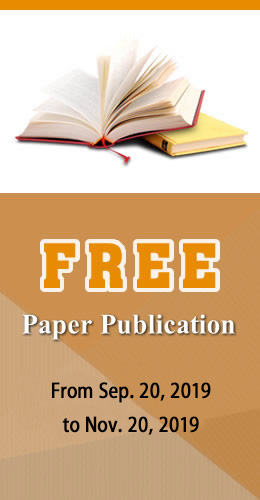The Effect of Blood Pressure Lowering Treatment on Serum Uric Acid Levels Among Nigerians with Uncomplicated Essential Hypertension
[1]
Mathias Abiodun Emokpae, Department of Medical Laboratory Science, School of Basic Medical Sciences, College of Medical Sciences, University of Benin, Benin City, Nigeria.
[2]
Magdalene Maduabuchukwu Igbomor, Department of Medical Laboratory Science, School of Basic Medical Sciences, College of Medical Sciences, University of Benin, Benin City, Nigeria.
Elevated serum uric acid levels were observed among Nigerian patients with essential hypertension. The levels of serum uric acid may vary according to the type of antihypertensive drugs the individual is placed on. This study evaluates serum uric acid levels in subjects with uncomplicated hypertension on different type of antihypertensive agents. The serum uric acid, glucose, malondialdehyde, triglycerides, total cholesterol and high density lipoprotein cholesterol levels were assayed in 200 known adults with hypertension and 100 normotensive subjects by spectrophotometric method using reagents supplied by Randox Laboratories, UK. The observed mean values were compared between groups using Analysis of Variance (ANOVA). Serum uric acid level was significantly lower (p < 0.001) among hypertensive subjects who were on calcium channel blockers than in those on thiazide diuretics, combine therapy and other antihypertensive drugs. The observed serum uric acid levels were highest among those on thiazide diuretics (482±15.0µmol/L), followed β-blockers, angiotensin II receptor inhibitors and angiotensin II converting enzyme inhibitors (465±9.0µmol/L) and those on combine treatment (448±9.2µmol/L). Serum Uric was level was highest in subjects on thiazide diuretics and lowest in those on combine regimen. It is suggested that serum uric levels may be routinely assay in subjects with uncomplicated hypertension.
Hypertension, Calcium Channel Blockers, Diuretics, Serum Uric Acid
[1]
Jones DP, Richey PA, Alpert BS, Li R. Serum uric acid and ambulatory blood pressure in children with primary hypertension. Pediatr Res 2008; 64: 556-61.
[2]
Verdecchia P, Schillaci G, Reboldi GP, Santeusanio F, Porcellati C, Brunetti P. Relation between serum uric acid and risk of cardiovascular disease in essential hypertension. The PIUMA study. Hypertension 2000; 36: 1072-78.
[3]
Borghi C, Rosei EA, Bardin T, Dawson J, Dominiczak A, Kielstein JT, Manolis AJ, Perez-Ruiz F, Mancia G. Serum uric acid and the risk of cardiovascular and renal disease. J Hypertens 2015; 33: 1729-41.
[4]
Johnson RJ, Kang DH, Feig D, Kivlighn S, Kanellis J, Watanabe S, Tuttle KR, Rodriguez-Iturbe B, Herrera-Acosta J, Mazzali M. Is there a pathogenetic role for uric acid in hypertension and cardiovascular and renal disease? Hypertension 2003; 41: 1183-90.
[5]
Grassi G. Effects of serum uric acid on blood pressure lowering treatment. Curr Med Res Opinion 2017; 33 (53): 15-9.
[6]
Emokpae MA, Abdu A. Serum Uric levels among Nigerians with essential hypertension. Niger J Physiol Sci 2013 (28): 041 –4.
[7]
Moriwaki Y. Effects on uric acid metabolism of the drugs except the antihyperuricemics. J Bioequiv Availab 2014; 6: 1.
[8]
Choi HK, Soriano LC, Zhang Y, Rodriguez LAG. Antihypertensive drugs and risk of incident gout among patients with hypertension: Population base case-control study. BMJ 2012; 344: d8190.
[9]
Choi HK, Atkinson K, Karlson EW, Curhan G. Obesity, weight change, hypertension, diuretic use, and risk of gout in men: the health professionals follow-up study. Arch Intern Med 2005; 165: 742-8.
[10]
Reyes AJ. Cardiovascular drugs and serum uric acid. Cardiovasc Drugs Ther 2003; 17: 397-14.
[11]
Adverse reactions to bendrofluazide and propranolol for the treatment of mild hypertension. Report of Medical Research Council Working Party on Mild to Moderate Hypertension. Lancet 1981; 2: 539-43.
[12]
Ruilope LM, Kirwan BA, de Brouwer S, Danchin N, Fox KA, Wagener G, et al. Uric acid and other renal function parameters in patients with stable angina pectoris participating in the ACTION trial: impact of nifedipine GITS (gastro-intestinal therapeutic system) and relation to outcome. J Hypertens 2007; 25: 1711-8.
[13]
Friedewald WT, Levy RL, Fredrickson DS. Estimation of concentration of low density lipoprotein cholesterol in plasma without use of preparative ultracentrifuge. Clin Chem 1972; 10: 499-502.
[14]
Chanard J, Toupance O, Lavaud S, Hurault de Ligny B, Bernaud C, Moulin B. Amlodipine reduces cyclosporin-induced hyperuricaemia in hypertensive renal transplant recipients. Nephrol Dial Transplant 2003; 18: 2147-2153.
[15]
Burnier M, Roch-Ramel F, Brunner HR. Renal effects of angiotensin II receptor blockade in normotensive subjects. Kidney Int 1996; 49: 1787-90.
[16]
Leary WP, Reyes AJ, Wynne RD, van der Byl K. Renal excretory actions of furosemide, of hydrochlorothiazide and of the vasodilator flosequinan in healthy subjects. J Int Med Res 1990; 18: 120-41.
[17]
Hunter DJ, York M, Chaisson CE, Woods R, Niu J, Zhang Y. Recent diuretic use and the risk of recurrent gout attacks: the online case-crossover gout study. J Rheumatol 2006; 33: 1341-5.
[18]
Pedersen OL, Jacobsen FK, Stengaard-Pedersen K. Renal uric acid handling is not affected by beta-adrenoceptor blockade in normotensive subjects. Eur J Clin Pharmacol 1985; 28: 223-4.
[19]
Cicero AF, Rosticci M, Fogacci F, et al. High serum uric acid is associated to poorly controlled blood pressure and higher arterial stiffness in hypertensive subjects. Eur J Intern Med 2017; 37: 38-42.







